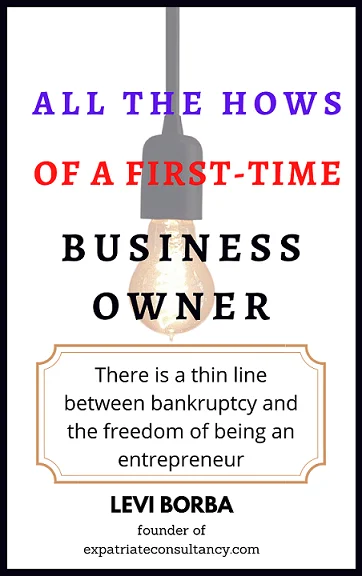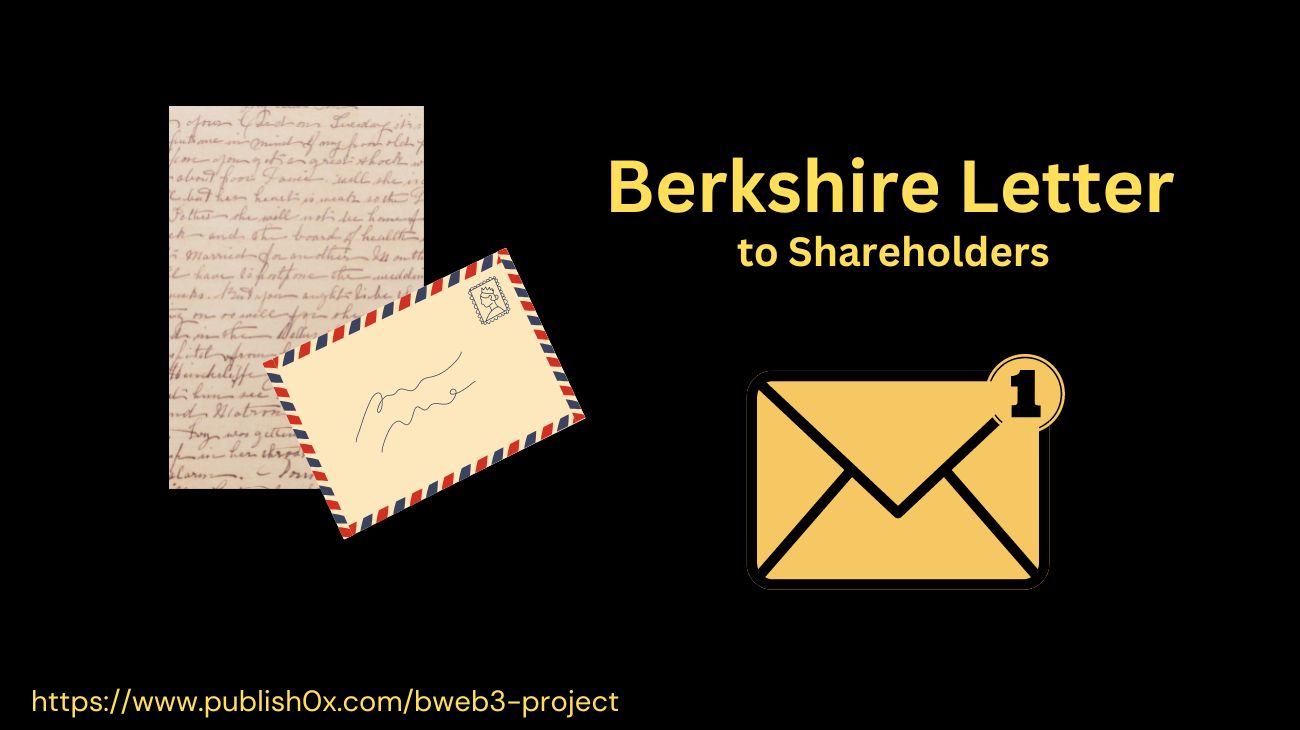There are millions of financial gurus today: on Youtube, Linkedin, Udemy, or even here, on Medium.
Some of them give indeed valuable advice, but others (and I dare to say, most of them) either repeat obvious things that anyone with basic personal finance education knows or give revolutionary (and catastrophic) advice.
What is the best way to separate the fools from the pros?
I bet that the safest method is to look into their investment performance. How they walk the talk.
And in this matter, few gurus beat Warren Buffett. After all, for years, he was one of the three richest men on the planet.
In this article, I will present you with 2 lists, as well as a brief synopsis or opinion about each book mentioned.
The first are the main books about Warren Buffett and his investment strategy. The second are the books recommended by this famous (and successful) investor, also known as the Oracle of Omaha.
Who is Warren Buffett
Warren Buffett’s story begins in 1930 in the US state of Nebraska. From an early age, Buffett showed an early interest in business and investment. Buffett’s early formative years were filled with commercial endeavors. While still in high school, he earned a few bucks delivering newspapers, selling golf balls and stamps, among other things.
In his sophomore year in 1945, Buffett and a friend paid $25 for an old pinball machine and installed it in a neighborhood barbershop. Within a few months, they had several machines in three different barber shops around town. Months later, they sold the company for a sum several times greater than they invested.
Buffett went to the University of Pennsylvania, then switched to the University of Nebraska, where he earned a business administration degree there. It was later that he went to Columbia Business School, where he got a master’s degree in economics.
Warren Buffett is a follower of Benjamin Graham’s school of thought, which is based on value investing. Value investing is when investors look for stocks that have a low price compared to their true value. There is no foolproof way to figure out a company’s intrinsic value. Most of the time, it is found by looking at the company’s basics. The value investing investor is like a bargain hunter. They look for stocks that are undervalued by the market but aren’t being bought by many other investors.
A curiosity: despite having a personal fortune of over 100 billion dollars, Warren Buffett still lives in the same house he bought in 1958 for $31,500.
Books about Warren Buffett
The investor has given a lot of lectures, essays, and letters that have been put together into books that show how he invests. It was Warren Buffet’s daughter-in-law, Mary Buffett, who was the main person who put all of these ideas together. She studied his investment methods for almost 12 years. Her books are:
Warren Buffett and the Interpretation of Financial Statements
Subtitle: The Search for the Company with a Durable Competitive Advantage
The authors, Mary Buffett and David Clark explain how Warren Buffett created his wealth with the revolutionary idea that companies with a competitive advantage show such strength and predictability in earnings that their growth turns the stock into a kind of equity bond, with higher dividends.
The Tao of Warren Buffett
Subtitle: Warren Buffett’s Words of Wisdom: Quotations and Interpretations to Help Guide You to Billionaire Wealth and Enlightened Business Management
“The Tao of Warren Buffett,” by Mary Buffett and David Clark, is a collection of quotes and opinions from the mega-investor that say a lot about who he is and how he invests. They advise on how to deal with crises, look at businesses and their strengths, and even how to get rid of bad investments. Things an investor needs to be a winner in the financial market.
Warren Buffett says that investing is simple. For him, an investor only needs to know how to do the four basic math operations. More than that is a distraction from the main goal: investing in well-run businesses with long-term competitive advantages.
The Warren Buffett Stock Portfolio
Subtitle: Warren Buffett Stock Picks: Why and When He Is Investing in Them
Warren Buffet argues that the time to buy stocks is when no one else wants them. During crises, we notice that some of the most unexpected companies — those with a lasting competitive advantage — are traded at prices that provide investors with a great opportunity to make money over the long term. In Warren Buffett’s perspective, when stock prices (of companies with good fundamentals) go down, the quality of investment goes up.
After giving a quick overview of Warren Buffet’s investment strategy, the authors show how to quickly figure out which companies have a long-term advantage in the market and predict how much money investment will make each year. offers.

The 10 Best Investment Books Recommended by Warren Buffett
The Great Crash 1929
John Kenneth Galbraith
Unlimited speculation, triggered by the volumes traded, assets acquired by buyers who want to sell them in a day or an hour. It’s the late 1920s.
Galbraith said in a new introduction dated 1997 that the heated market of the late 1990s had apparent and unmistakable similarities to the great crisis of 1929, and notes that every financial boom since then has been compared to 1929, which is why this bestseller of 1955 never left the best sellers list.
When Galbraith talks about investments that could go wrong and the government that doesn’t do anything, he does so with humor and experience. There were new big-loss businesses on the market every week in the 1990s. There are several notable parallels, including all those uninformed investors who thought they were in the market just because of their investments soaring in value, riding a bull wave.
The Outsiders: Eight Unconventional CEOs and Their Radically Rational Blueprint for Success
William N. Thorndike Junior
An executive’s success is caused by a lot of different things. The most common definition is “a mature manager who knows how to run a business.” Others say that well-known CEOs have confidence, good communication skills, and charisma.
Is it really important when you run a business? What makes a great leader? It all comes down to how well the company does in the long run for its shareholders. In this book, William N. Thorndike Jr. talks about how to make money in sales. He looks at companies like General Dynamics, TCI, Teledyne, Berkshire Hathaway, and many others, and he looks at their attitudes and leaders.
In this book, we learn about the ways and traits that made these leaders so successful. The author tells us about his studies and experiences, with interesting stories, important lessons, and a model for anyone who wants to start a successful business.
The Little Book of Common Sense Investing (One of Warren Buffett’s favorite books for beginners)
John C. Bogle
A classic guide to trading wisely in the financial market. John C. Bogle, the founder of the legendary American fund manager Vanguard, reveals the secret of his performance in this book, detailing what he considers the simplest and most efficient strategy: index funds.
This book will revolutionize the way you think about investing by providing detailed instructions as well as practical suggestions. Lessons like:
- How to build a diversified, low-cost portfolio free of the risks associated with specific companies, director selection, and industry turnover.
- How to capitalize on the power of returns while avoiding cost tyranny.
- What experienced investors and scholars such as Warren Buffett, Benjamin Graham, Paul Samuelson, and Burton Malkiel have to say about investing.
Shoe Dog: A Memoir by the Creator of Nike
Phil Knight
Phil Knight, the man behind Nike, has always been a mysterious figure. Now he tells his story in a frantic and surprising book.
After 24 years of backpacking and seeing the world, Knight decided he wouldn’t work for a big company as it would be boring and monotonous. With $50 from his father and father, he started a company in 1963 to import high-quality Japanese sneakers at a low cost. And he couldn’t believe it when he sold all of his first orders in record time.
Creating Nike was no easy task, as Knight details the risks he faced, the formidable competitors, and his many victories and strokes of luck.
He remembers the creation of the name and emblem, the first tennis models, and contracts with renowned athletes. The relationship with Nike founder Bill Bowerman and the first employees, a group of misfit geniuses who quickly became a family, are also highlighted.
They created a brand and a culture that would forever change the parameters of performance and winning.
Common Stocks and Uncommon Profits
Philip Fisher
Philip Fisher is considered one of the greatest investors of all time. His investment concept, introduced over sixty years ago, is still used and studied by experts and was an influence on Warren Buffett.
Fisher’s three major works are included here: Common Stocks, Extraordinary Earnings (1958), Conservative Investors Sleep Easy (1975), and Developing an Investment Philosophy (1980). The book features a new introduction written by the author’s son, fellow investor Kenneth Fisher, who adds insight to his father’s work.
A great book to not be trapped by the torments of a risky stock market.
Business Adventures: Twelve Classic Tales from the World of Wall Street
John Brooks
A business book about the failures of big companies and one that is among Bill Gates’ favorites.
Microsoft founder asked his friend Warren Buffett for a good business book to read in 1991. Buffett didn’t think twice: he recommended John Brooks’ book, Business Adventures. Bill loved it and he still thinks it’s the best business book he’s ever read.
The truth is, many companies have changed, but the basics remain. One of the stories in the book that anyone working in the technology field should read is about Xerox. The company paid no attention to the research that led to the development of the Internet and the first graphical user interface, which we now know as Windows. She felt that these products were unimportant. Or when the Ford Motor Company tried to make the Edsel, a passenger car model that failed because they didn’t pay attention to the name, design, and consumer opinions. Entrepreneurial Adventures show that the moment of decision-making can help or destroy a business.
Dream Big
Cristiane Correa
Over the past 40 years, Jorge Paulo Lemann, Marcel Telles, and Beto Sicupira have built the greatest empire in the history of Brazilian capitalism. They have also gained an unprecedented level of attention on the world stage.
In just five years, they bought three globally known American brands: Budweiser, Burger King, and Heinz. All this was done with the utmost discretion, trying to stay out of the public eye. The trio created a unique management formula, based on meritocracy and always looking for ways to cut costs. An efficient and relentless culture where there is no room for inefficient work. Those who survive can become partners and make a fortune.
Dream Big is an in-depth look at the lives of these entrepreneurs since the foundation of Banco Garantia, in the 1970s, until now.
The Most Important Thing: Uncommon Sense for The Thoughtful Investor
Howard Marks
Howard Marks, the founder of Oaktree Capital, is known around the world for his outstanding stock market performance. For a long time, he was one of the most profitable managers of the US stock exchanges. Now he teaches you how to find the best stocks and use your money wisely. Whether you are an experienced investor or just starting, this book is for you as it has advice for both types.
The book, which became an instant bestseller, is used by some of the best investors in the world, such as Warren Buffet, Joel Greenblatt, and Ray Dalio, among others.
The author describes how to be a good investor and warns against things that can eat away at your money. He teaches important lessons about risk management and decision making and wisely analyzes market cycles.
A Short History of Nearly Everything
Bill Bryson
An account of almost everything we know about the world, from the beginning of time to the present day. The book won the Aventis Prize in 2004 and was published in 29 countries, selling over 2 million copies in England alone.
Bill Bryson, a well-known writer, and columnist realized that he didn’t know why the oceans were salty. He also realized that he didn’t know much about the planet he lived on. The search led him to take on a gigantic task: understanding and explaining almost everything he didn’t know.
Bryson talks about physics, geology, paleontology, and all the other subjects he considered “boring” when he was at school. It starts at the beginning of the universe and goes on to the present day. Unlike the traditional textbook, his writing doesn’t use technical terms, but it doesn’t lose depth. The author wants to know how scientists come up with new ideas. To write this brief history of just about everything, Bryson looked at several different sources and put together what might be called a fun scientific guidebook.
The Ten Commandments for Business Failure
Donald R. Keough
Use Don Keough’s 10 Commandments to Fail in Business and your downfall is sure. And fast too. Using humor and common sense, Keough talks about the 10 things that often drive businesses and leaders out of business. If you want to avoid these pitfalls, this book shows you how.
When Keough talks about his ideas, he doesn’t use clichés as “secrets to success”. Instead, he uses historical facts to support his ideas. He points out the useful and surprising parts of disasters, as well as their fun parts. This is also a title I would list among the best books for business owners.
Books Suggested by Warren Buffett: Conclusion
You can check also our Investment Guide.
Of these investment books recommended by Warren Buffett, which is your favorite? Are there any other books recommended by the Omaha Oracle that you would like us to put on the list? If you had to choose ONE title to receive as a gift, which would it be?
This post was initially published on the Small Business Hack blog. In February 2024, the blog was bought by Blogelist and later integrated into the existing ecosystem. Any (potential) changes in content after that date were not consulted with the initial author and come from the current staff.





